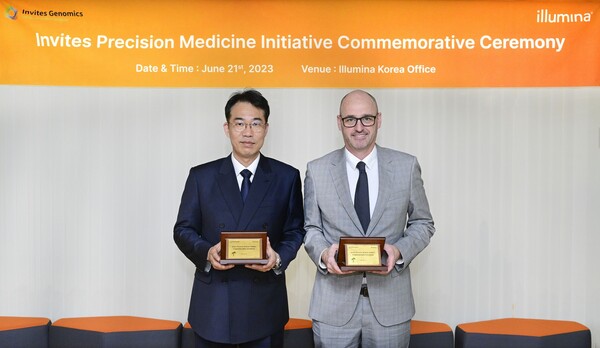Invites Genomics and Illumina said that they have officially kicked off the Invites Precision Medicine Initiative, aiming to collect genomic information and metadata from 50,000 Koreans, including 10,000 Jeju Island residents.

The Invites Precision Medicine Project will leverage DRAGEN, Illumina’s cloud-based data analytics and management solutions, and Illumina Connected Analytics.
“We aim to build a genome library for 32 kinds of common diseases, and the library will help us discover new biomarkers that are specific to and prevalent in the Korean population,” Invites Genomics CEO Ko Yoo-seok said. “These biomarkers can be used to predict, diagnose, and treat diseases through personalized health management and medicines.”
Ko said genomics has many benefits in precision medicine.
As next-generation sequencing (NGS) technology can help sequence multiple genes at once, it has become easier to identify disease-associated variants to help match patients to therapies or assess disease risk, and help target therapies and reduce overall care costs, he said.
“Although genetic factors play a significant role in the development of disease, there has not yet been a case where the cause of disease in Koreans was identified using genetic information that is unique to only Koreans, and a treatment method tailored to Korean-specific genetic variants,“ Ko said.
Illumina Korea General Manager Robert McBride also said, “Conducting large studies with Korean populations allows the identification of certain diseases that are more prevalent and helps discover any underlying causes that could be prevented or treated.”
It may also help the Korean government make difficult decisions about reimbursement of medicines aligned to the genetic diversity of the Korean people, he added.

